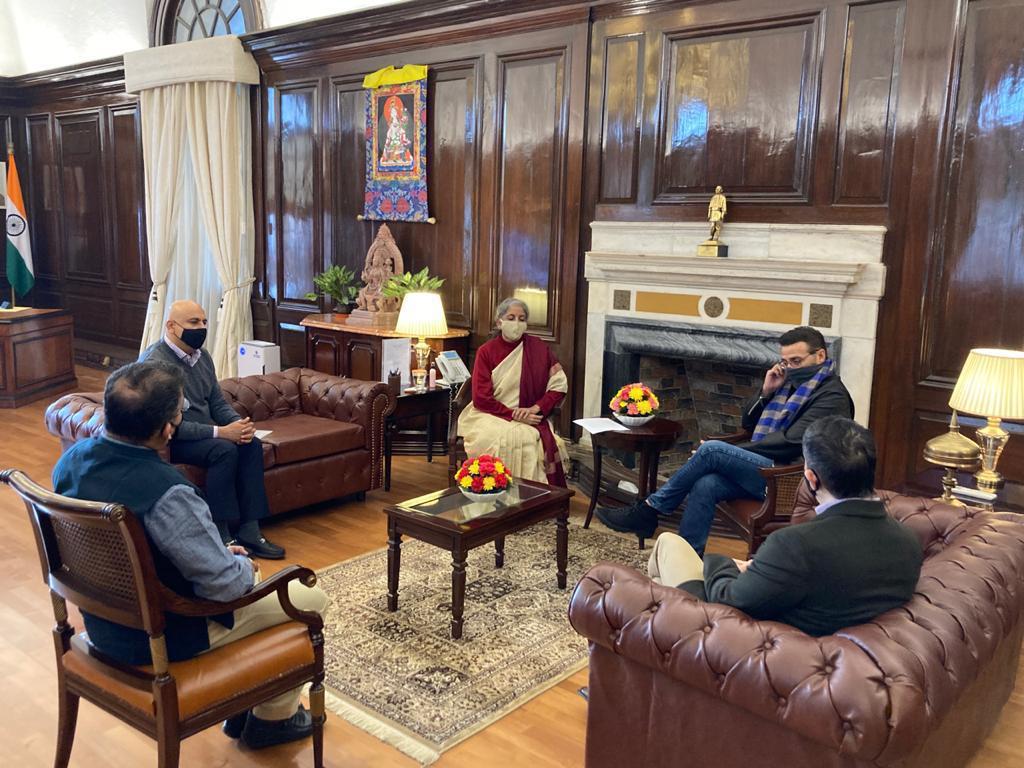
Budget 2021: Tax cuts, more occupancy in theatres on tinsel town's wishlist
India’s glitzy and thriving film industry was brought down to its knees, with the closure of cinema halls as a precautionary measure against the COVID-19 pandemic. The theatres have not returned to full capacity as yet, and as several big-budget film or franchise movies wait in the wings to be released, the industry is going through a massive crisis. It has lost much of its earlier sheen, as Over-the-top (OTT) platforms continue to dominate and are capturing all the eyeballs.

India’s glitzy and thriving film industry was brought down to its knees, with the closure of cinema halls as a precautionary measure against the COVID-19 pandemic. The theatres have not returned to full capacity as yet, and as several big-budget films or franchise movies wait in the wings to be released, the industry is going through a massive crisis. It has lost much of its earlier sheen, as over-the-top (OTT) platforms continue to dominate and are capturing all the eyeballs.
The financial losses are expected to be heavy due to this major slump in film distribution. A KPMG report said that the film business is expected to contract in India by nearly 67 per cent in the financial year 2020-21.
Also read:In seismic shift, Warner Bros. to stream all 2021 films
However, the Indian film industry has pinned its hopes on the new Budget and on the finance minister, Nirmala Sitharaman to provide some sops to revive its sagging fortunes.
Suresh Amin, CEO of the Indian Film and Producers Council, a representative body of the Bollywood film industry told The Federal, “We are the ambassadors of India worldwide. The government has to take our grievances into consideration in the new budget. We want the finance minister to reduce GST on tickets and in distribution agreements; give subsidies for small film production units making films promoting Indian culture and encourage banks to facilitate financing for films.”
According to Amin, the losses that Bollywood has incurred during the pandemic are “unimaginable”.
“Our theatres continue to be empty. The recent release, Madam Chief Minister has not attracted the audience. Vijay in the south has, however, done remarkably well with his Master and has managed to pull in the crowds. But it is not the same in Mumbai, our theatres are empty,” he said.
In a bid to draw the government’s attention to their problems, a delegation led by BJP MP, senior actor Sunny Deol met the minister of finance and corporate affairs, Nirmala Sitharaman last week to present their demands to her. Deol was accompanied by joint managing director of PVR Cinemas, Sanjeev Kumar Bijli, and Kamal Gianchandani, CEO of PVR pictures. According to a tweet by film industry expert, Taran Adarsh, the minister has promised the team to consider relief measures for the beleaguered industry.
The delegation’s demands include relaxation in restrictions of audience size in theatres, waiving of tax and access to affordable finance. In the 2018 budget, the government had reduced the GST from 18 per cent to 12 per cent for cheaper tickets and had scaled it down for more expensive tickets from 28 to 18 per cent. And, in last year’s budget, a single-window clearance for film shootings and anti-camcording provisions to control piracy were proposed to help the sector grow at a faster pace.
Meanwhile, Naveen M, a well-known distributor in the Kannada film industry, too has demanded that the government should immediately allow 100 per cent occupancy in cinema theatres; slash GST rates on theatre tickets costing more than ₹100 to 12 per cent and give a one-year holiday on TDS cuts in distribution agreements.
Also read:Entertainment tax is back in Kerala, movie tickets to get costlier
Film theatres across India are not just facing challenges like empty seats but they are also grappling with the lack of availability of new content. And above all, they are having to content with aggressive competition from OTT platforms. OTT platforms are fast emerging as their nemesis and are gradually chipping away at their viewership.
According to Ali Hussein, CEO of Eros Now, the OTT platforms have also started producing movies. “This is obviously going to lead to a smallish correction on the overall growth of the movie industry post-COVID-19,” he had told the media. Even as cinema theatre viewing falls, the viewership on both mobile screens and in-home viewing are expected to grow, he added.
Currently, however, the films directly releasing on OTT are still a fraction of what the industry makes. In 2019, an Ernst & Young report revealed that an industry of the size of Bollywood produced more than 1,800 films, and domestic theatrical releases generated more than US $1.5 billion. So, this Budget is a critical one for an industry that is trying to fight back and revive its fortunes.


